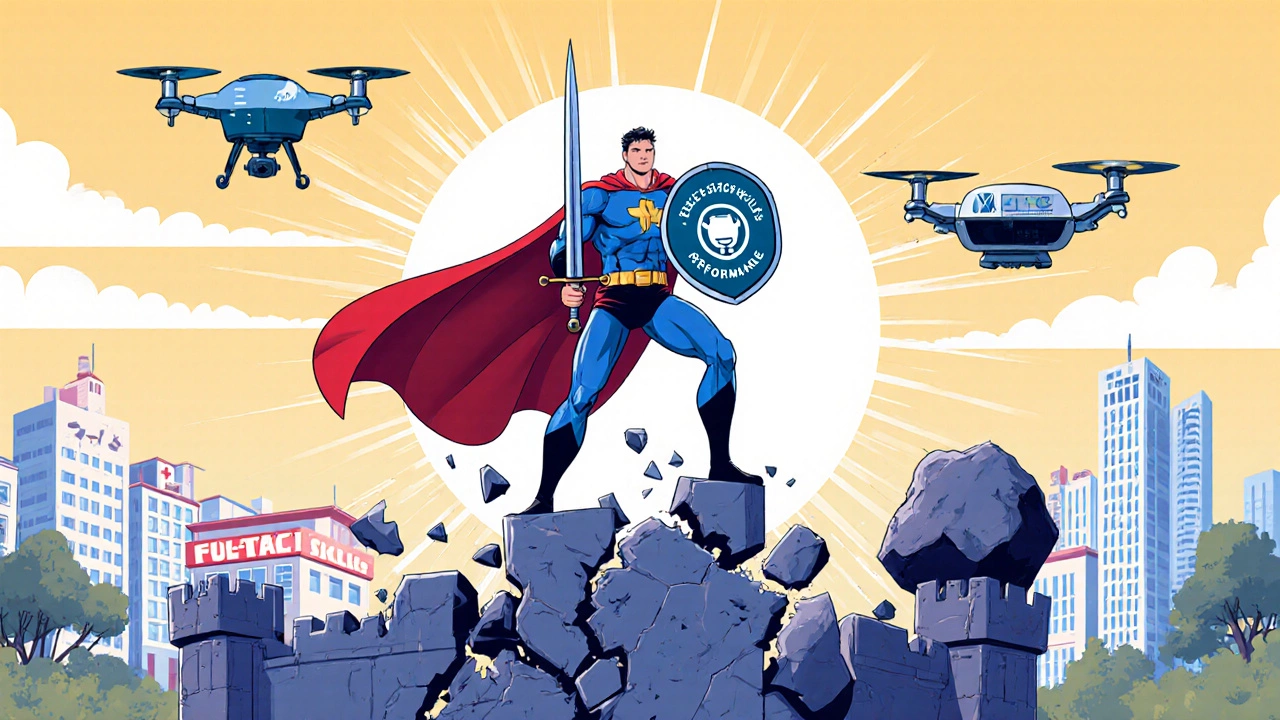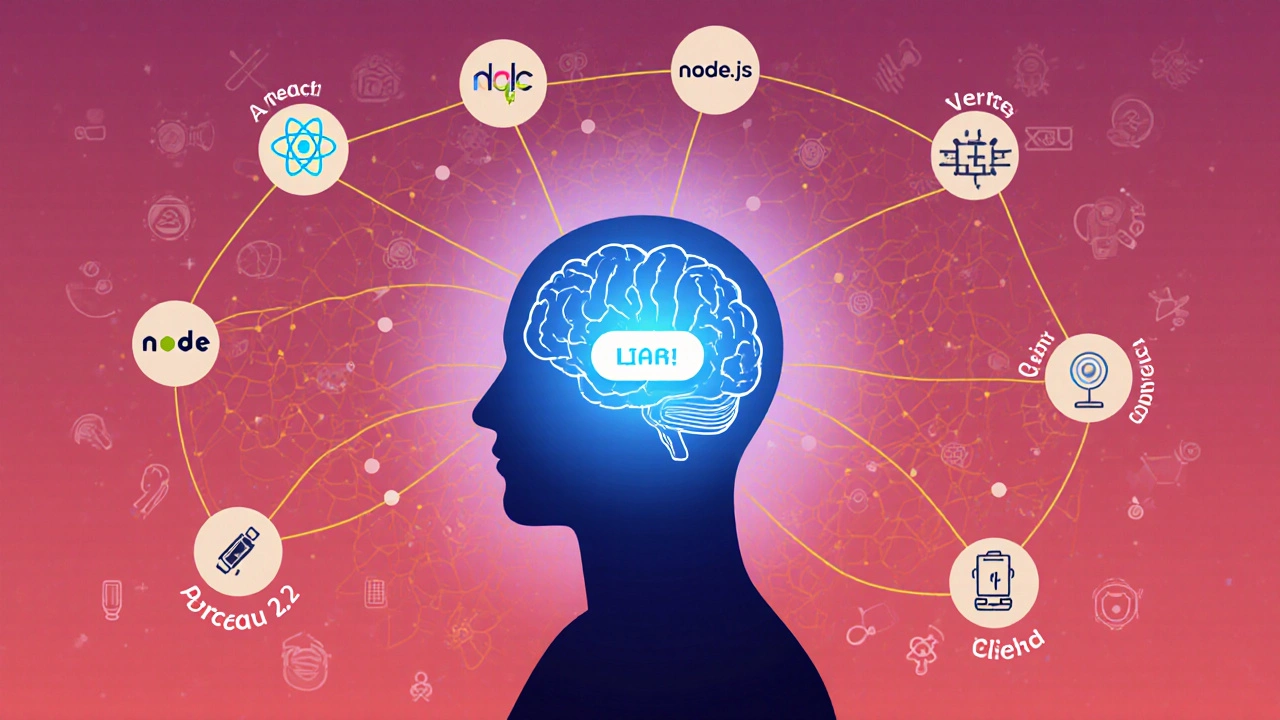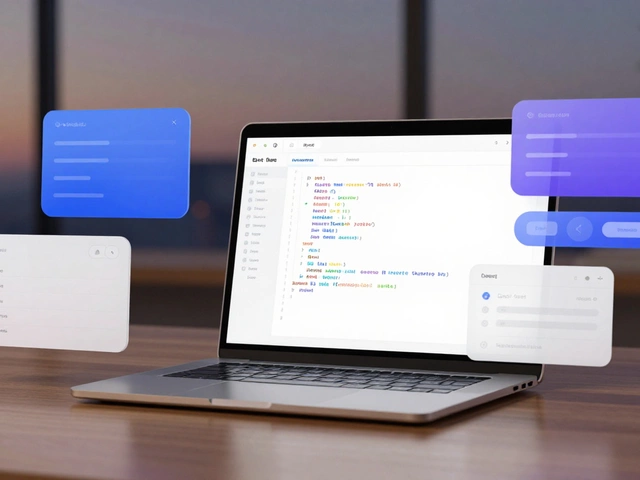Web Developer Skill & Salary Calculator
Assess Your Current Skills
Check the skills you currently have mastered (based on 2025 UK job market data)
Estimated Salary Range
Recommended Next Steps
Focus on mastering API integrations and performance optimization to increase your salary potential. Consider learning React if you're new to frontend development.
Three years ago, headlines screamed that AI would kill web development. Then came the layoffs. Then came the silence. Today, in 2025, the job market doesn’t look like a graveyard-it looks like a busy construction site. Companies aren’t hiring fewer web developers. They’re hiring smarter ones.
Web developers are more needed than ever
The number of web development roles posted in the UK alone jumped 22% from 2023 to 2025, according to data from LinkedIn and Reed.co.uk. That’s not a blip. That’s a trend. Why? Because every business, from local bakeries to national banks, now needs a digital presence that works fast, looks good on phones, and doesn’t crash when traffic spikes.
It’s not about building websites anymore. It’s about building systems. A small e-commerce store needs a checkout that handles 500 users at once. A healthcare provider needs a patient portal that’s secure, accessible, and compliant. A school needs a booking system that parents can use on their old Android phones. These aren’t simple tasks. They require real skills.
AI tools like GitHub Copilot help write code faster, but they don’t replace the person who knows what code to write. You still need someone to understand the business problem, choose the right tools, debug the weird edge case, and explain why the client shouldn’t use that flashy animation that slows down the whole site.
What skills actually matter now?
Back in 2018, knowing HTML, CSS, and JavaScript was enough. Today, that’s just the starting line. Employers want developers who can handle the full stack-or at least bridge the gap between frontend and backend.
Here’s what’s actually on the checklist in 2025:
- React or Vue for frontend (React dominates, used by 67% of UK tech firms)
- Node.js or Python (Django/Flask) for backend
- PostgreSQL or MongoDB for databases
- APIs-especially REST and GraphQL
- Deployment on platforms like Vercel, Netlify, or AWS
- Performance optimization-Core Web Vitals matter more than ever
- Accessibility (WCAG 2.2) isn’t optional-it’s a legal requirement for public services and many private ones
Companies aren’t looking for people who can copy-paste tutorials. They want people who can solve real problems. A developer who can make a site load in under 1.2 seconds on a 3G connection? That’s someone who gets hired fast.
AI didn’t replace web developers-it changed the game
Yes, AI can generate basic landing pages in seconds. But here’s what AI can’t do:
- Explain to a client why their "modern" design looks like a 2012 Flash website
- Fix a broken payment integration that only fails on Safari iOS 17.4
- Decide whether to use server-side rendering or static generation for a blog with 20,000 pages
- Understand the legal risks of storing user data without proper consent
AI tools are now part of the toolkit-like a hammer or a debugger. You don’t get hired because you use AI. You get hired because you know when not to use it, and how to fix it when it breaks.
One developer in Leeds told me his team used to spend 40 hours a week on boilerplate code. Now they use AI to handle 70% of it. That freed them up to focus on custom features that boosted client retention by 35%. That’s the real value.

Salaries haven’t dropped-they’ve shifted
Entry-level web developer salaries in the UK averaged £32,000 in 2023. In 2025, they’re £38,000. Mid-level roles (3-5 years experience) now pay £52,000-£65,000. Senior roles with full-stack and DevOps skills hit £75,000+ in London and £65,000+ in Leeds and Manchester.
But here’s the twist: the highest-paid developers aren’t the ones who know the most frameworks. They’re the ones who understand business outcomes. A developer who can tie their work to increased conversions, lower bounce rates, or reduced support tickets? That person gets promoted.
Web development courses are the gateway-not the finish line
There are thousands of web development courses online. Most of them are useless if you just watch and don’t build. The ones that work? They force you to ship real projects.
Look for courses that include:
- A final project you can put on GitHub
- Feedback from real developers (not just automated quizzes)
- Focus on modern tooling: Git, npm, Vite, testing
- Exposure to real client constraints: deadlines, scope creep, communication
FreeCodeCamp, The Odin Project, and Udacity’s Nanodegrees still hold up. But the real edge comes from contributing to open-source projects or fixing bugs on GitHub. That’s what gets you noticed.
One graduate from a 6-month bootcamp in Birmingham landed a job after fixing a typo in a popular open-source React component. The team reached out. He got hired. That’s how it works now.

Who’s hiring? And where?
It’s not just tech startups. Hospitals, councils, schools, charities, and even local plumbers are hiring web developers. The UK government’s digital service teams are expanding. The NHS is upgrading patient portals. Local councils need online booking systems for recycling pickups.
Remote work is still common, but many companies want someone local for collaboration. Leeds, Manchester, Bristol, and Edinburgh have strong tech scenes. Even smaller towns like Wakefield and Northampton have startups hiring full-stack devs.
Freelancing is still a solid path. Platforms like Upwork and PeoplePerHour are flooded with UK clients looking for developers who can deliver fast, communicate clearly, and fix things without needing hand-holding.
The truth: Web development isn’t dying. It’s maturing.
The days of building a website with WordPress and calling it a day are over. But that’s not a bad thing. It means the field is evolving into something more valuable.
Web development isn’t about being the fastest coder. It’s about being the most thoughtful one. The one who asks, "Why are we doing this?" The one who tests on old devices. The one who documents everything so the next person doesn’t pull their hair out.
If you’re thinking about learning web development in 2025, here’s your real question: Are you willing to keep learning? Not just how to code, but how to solve problems, talk to clients, and care about the people using your work?
If yes, then yes-web developer is still in demand. And it’s one of the best career moves you can make right now.
Is web development a dying career in 2025?
No. Web development isn’t dying-it’s becoming more specialized. While basic website builders like Wix or Squarespace handle simple sites, businesses now need custom, secure, fast, and scalable web applications. These require skilled developers who understand backend systems, performance, security, and user experience. Demand for these skills is growing, not shrinking.
Do I need a degree to become a web developer?
No. Most web developers today are self-taught or trained through bootcamps. Employers care more about your portfolio, problem-solving skills, and ability to ship working code than your diploma. A strong GitHub profile with real projects, even small ones, carries more weight than a degree without practical experience.
How long does it take to become a job-ready web developer?
With focused, daily practice, you can land an entry-level job in 6 to 12 months. The key isn’t just learning syntax-it’s building real projects, solving bugs, and learning how to communicate your work. Many people take longer because they skip the hard parts: testing, debugging, and deploying their code.
What’s the best way to learn web development in 2025?
Learn by doing. Start with free resources like The Odin Project or freeCodeCamp, then build three real projects: a personal portfolio, a small e-commerce product page, and a tool that solves a problem you have. Use Git, deploy on Netlify or Vercel, and share your code on GitHub. Join developer communities and ask for feedback. That’s how you stand out.
Can AI replace web developers completely?
No. AI can generate code snippets and automate repetitive tasks, but it can’t replace human judgment. You still need a developer to understand business goals, fix edge cases, ensure accessibility, handle security, and communicate with clients. AI is a tool, not a replacement. The best developers use AI to work smarter, not to avoid learning.
Are web developer salaries dropping because of AI?
No. Entry-level web developer salaries in the UK have actually increased to £38,000 in 2025, up from £32,000 in 2023. Mid-level roles pay £52,000-£65,000. Salaries are rising because demand for skilled developers who can handle complex systems is growing. AI hasn’t flooded the market-it’s raised the bar for what employers expect.
Next steps if you’re thinking about getting into web development
Start small. Pick one thing to build this week-a simple to-do list app. Use HTML, CSS, and JavaScript. Don’t worry about making it perfect. Just make it work. Then share it with someone. Ask them: "What’s confusing?" That’s your next lesson.
Follow one developer on Twitter or Mastodon who shares real code snippets. Learn from their mistakes, not just their wins.
And if you’re worried about being too late? You’re not. The web is still growing. Every day, new businesses need help going online. Someone has to build it. Why not you?





